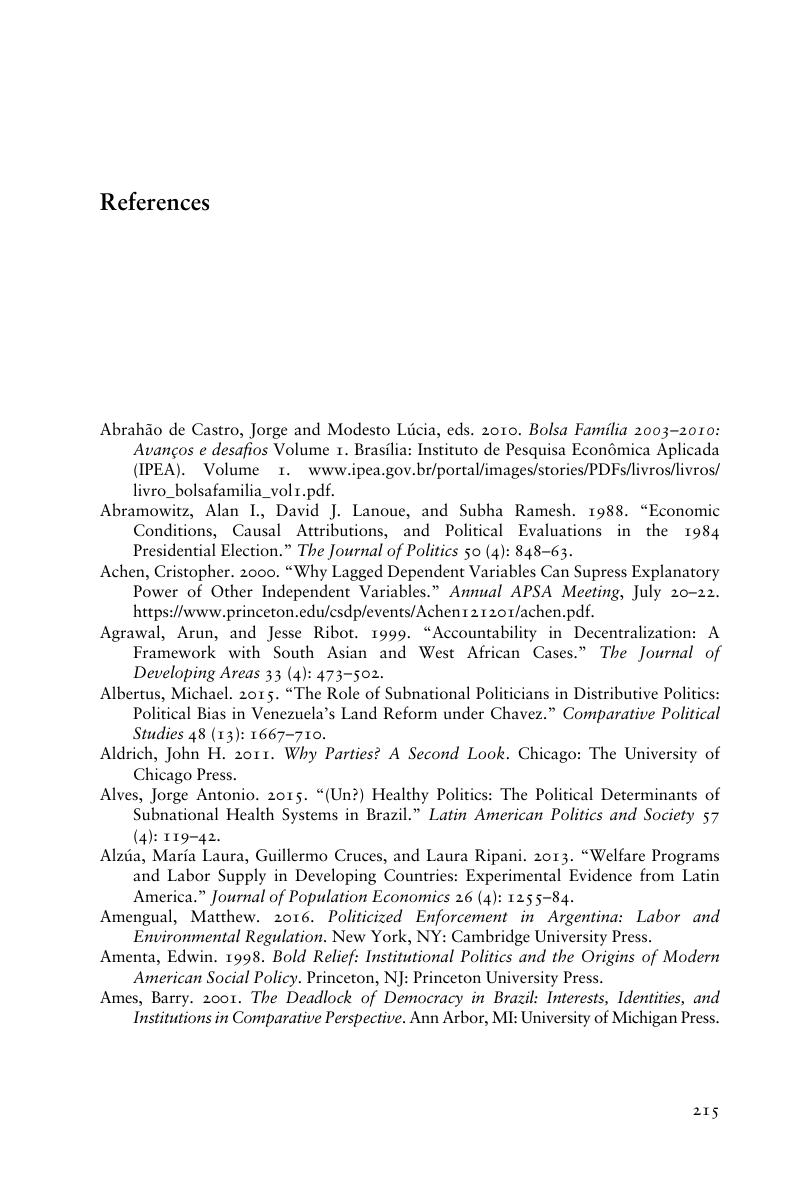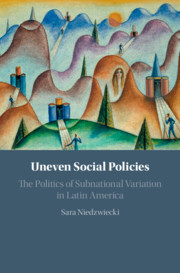Book contents
- Uneven Social Policies
- Uneven Social Policies
- Copyright page
- Dedication
- Contents
- Figures
- Tables
- Acknowledgments
- Acronyms
- 1 Politics of Social Policy in Decentralized Countries
- 2 Explaining Social Policy Implementation
- 3 Mixed Methods and Multilevel Research Design
- 4 Subnational Statistical Analysis
- 5 Conditional Cash Transfers in Argentina and Brazil
- 6 Health Care Policies in Argentina and Brazil
- 7 Conclusions
- References
- Interviews
- Index
- References
References
Published online by Cambridge University Press: 17 August 2018
- Uneven Social Policies
- Uneven Social Policies
- Copyright page
- Dedication
- Contents
- Figures
- Tables
- Acknowledgments
- Acronyms
- 1 Politics of Social Policy in Decentralized Countries
- 2 Explaining Social Policy Implementation
- 3 Mixed Methods and Multilevel Research Design
- 4 Subnational Statistical Analysis
- 5 Conditional Cash Transfers in Argentina and Brazil
- 6 Health Care Policies in Argentina and Brazil
- 7 Conclusions
- References
- Interviews
- Index
- References
Summary

- Type
- Chapter
- Information
- Uneven Social PoliciesThe Politics of Subnational Variation in Latin America, pp. 215 - 239Publisher: Cambridge University PressPrint publication year: 2018



